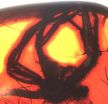(Press-News.org) Jerusalem, May 18, 2011 – In case you thought that octopuses were smart only in guessing the outcome of soccer matches (remember the late Paul the octopus in Germany who picked all the right winners in last year's world cup matches in Johannesburg?), scientists at the Hebrew University of Jerusalem have now shown that not only are they smart, they can make some pretty good moves as well.
Octopuses are among the most developed invertebrates. They have large brains and are fast learners. With eight arms and no rigid skeleton, they perform many tasks like crawling, swimming, mating and hunting. And unlike most animals such as humans -- who are restricted in their movements by a rigid skeleton which helps in determining the position of their limbs – octopuses have limitless flexibility.
But because they have no such rigid structure, it was believed that the octopuses have only limited control over their eight flexible limbs. However, the Hebrew University researchers have shown otherwise. They developed a three-choice, transparent, plexiglass maze that required the octopus to use a single arm and direct it to a visually marked compartment outside of its tank of water that contained a food reward.
The octopuses in the experiment learned to insert a single arm through a central tube, out of the water, and into the correct marked goal compartment to retrieve the food reward. This success was dependent on visual information, which the octopuses were able to translate into a series of coordinated movements made by a single arm and retrieve the food. They were also able to repeat this process.
The completion of this task shows for the first time that an octopus can direct a single arm in a complex movement to a target location. Motor control issues, such as this, are the basis of an ongoing European Union research project aimed at building a "robot octopus." To understand how the octopus controls its movements, and to what extent it controls them, is therefore an important base for the design of the control architecture of a robot devoid of a rigid skeleton.
The research was reported on in a recent edition of Current Biology, and was authored by Tamar Gutnick, Prof. Binyamin Hochner and Dr. Michael Kuba of the Interdisciplinary Center for Neural Computation at the Alexander Silberman Institute of Life Sciences at the Hebrew University, and Dr. Ruth A. Byrne of the
Medical University of Vienna, Austria.
INFORMATION:
Hebrew University researchers show octopuses make some pretty good moves
2011-05-19
ELSE PRESS RELEASES FROM THIS DATE:
Changes Being Made to Juvenile Sentencing Laws in Many States
2011-05-19
Throughout the 1990s, many states revamped their juvenile criminal laws to make it easier for judges to sentence children to adult prison. This was obviously done in an effort to appear "tough on crime" after a number of high-profile and sensational juvenile-offender cases had caused a media and public outcry. What many suspected at the time, however, and what has been proven to be true over time, is that this approach has been a poor solution to a complex problem.
The pendulum is now beginning to swing the other way. A report by the Campaign for Youth Justice ...
Breaking the silence on aid workers' salaries
2011-05-19
A new international Task Force has been set up to promote 'a fair day's work for a fair day's pay' for workers and to develop organisational capacity in lower income countries. The research which found discrepancies between the salaries earned by local and those earned by expatriate aid workers was instrumental in setting up the task force. According to the findings from a jointly funded project by the Economic and Social Research Council (ESRC) and Department for International Development (DFID) an expatriate aid worker will be paid on average four times more (and sometimes ...
Teachers need greater awareness of language disorders
2011-05-19
Greater awareness of 'specific language impairment' (SLI), a language disorder, is needed to ensure better outcomes for the 3-6 per cent of UK school children affected by this disability. Children with SLI have difficulties with most or all aspects of language including grammar, vocabulary and literacy as well as with short term memory. According to new research funded by the Economic and Social Research Council (ESRC), they also have problems with higher order thinking skills. SLI may have a greater impact on these children than the better know disorder, dyslexia.
"The ...
Medical Error Costs Continue to Plague Health Care System
2011-05-19
Irony has hit the health care system. While its goal is to safely heal injuries and diseases, the U.S. healthcare system has created an epidemic of medical errors. Recent studies reveal the physical and financial toll these medical mistakes continue to take on the quality of patient care. While medical malpractice reforms have attempted to curb the damages patients may recover after an injury caused by medical negligence, the health care system still suffers from a lack of incentive for doctors and hospitals to impose and adhere to stricter safety measures. In the meantime, ...
Imaging technology reveals intricate details of 49-million-year-old spider
2011-05-19
Scientists have used the latest computer-imaging technology to produce stunning three-dimensional pictures of a 49 million-year-old spider trapped inside an opaque piece of fossilized amber resin.
University of Manchester researchers, working with colleagues in Germany, created the intricate images using X-ray computed tomography to study the remarkable spider, which can barely be seen under the microscope in the old and darkened amber.
Writing in the international journal Naturwissenscaften, the scientists showed that the amber fossil – housed in the Berlin Natural ...
Upcoming Supreme Court Decision Could Open Door for More Lawsuits Against Car Makers
2011-05-19
The U.S. Supreme Court recently heard oral arguments in a case that has the potential to make it easier for accident victims and their families to bring products liability claims against automobile manufacturers. In Williamson v. Mazda Motor Corp. of America (No. 08-1314), the Court has been asked to decide whether federal safety regulations preempt state-based products liability claims against car manufacturers.
In Williamson, 32-year-old Thanh Williamson died as a result of injuries sustained in a 2002 car crash. Williamson was sitting in the second row seat of a 1993 ...
Occupational lung diseases in Iraq and Afghanistan veterans
2011-05-19
ATS 2011, DENVER – A Wednesday morning session will explore the inhalational exposures and respiratory outcomes of military deployment to Iraq and Afghanistan. Presenters will review current knowledge on complex inhalational exposures, epidemiologic studies, animal toxicology studies, and clinical lung findings in U.S. military men and women who are returning from Southwest Asia.
D6 "Occupational Lung Diseases in U.S. Military Personnel Deployed to Iraq and Afghanistan" will take place from 8:15 to 10:45 a.m. in the Wells Fargo Theatre Section 1 on the street level of ...
Half of prostate cancers could potentially benefit from new type of cancer drugs, U-M study finds
2011-05-19
ANN ARBOR, Mich. — About half of prostate cancers have a genetic anomaly that appears to make tumor cells responsive to a new class of cancer-fighting drugs, a new study from the University of Michigan Comprehensive Cancer Center finds.
The drugs, called PARP inhibitors, are currently being tested in breast cancer patients with mutations in the BRCA1 and BRCA2 genes, which are found in up to 10 percent of all breast cancers.
Half of prostate cancers have a genomic rearrangement that causes the fusion of two genes called TMPRSS2 and ERG. This gene fusion, believed to ...
Closed Head Injuries Can Be Serious Consequence of Auto Accidents
2011-05-19
Head injuries can be classified in one of two ways, open and closed.
Open, or penetrating, head wounds are what most of us think of when picturing common brain injuries. They occur when an object pierces the skull, and are usually easy to observe and detect.
Closed head injuries, on the other hand, typically involve a blow from an object that does not break the skull. Closed head injuries are often difficult to diagnose, since they often evince no external signs. Yet, they can be just as damaging as their open counterparts.
An article by Leonardo Rangel-Castilla, ...
Increase in risk of certain gastric cancer from heavy drinking
2011-05-19
The results from a very well-done meta-analysis support other data generated on the risk of alcohol consumption and gastric cancer – that is – that the risk may be real for heavy alcohol consumption but not for moderate intake. The type of gastric cancer relating to heavier alcohol intake in this study tended to be tumors involving the noncardia, but differences between the association with tumors of the gastric cardia were not significant.
There was no increased risk of gastric cancer from alcohol intake among Asians; this may be due to their lower alcohol intake; ...

